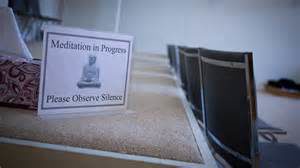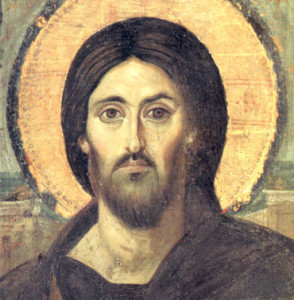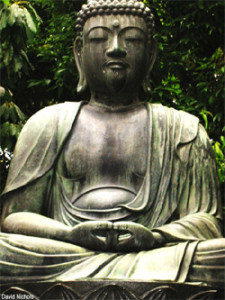Insight Meditation
I recently wrote about my struggle with addictions. Yes, multiple addictions. It is just now coming out that the root cause of addiction is abuse at some time in the addict’s life. It is true for me. I turned to addictive behavior to get a feel good in a life that incorporated pain or suffering stemming from the abuse.
The mental pain or suffering arises, and I seek to eliminate or blunt the pain with the feel good. It can be alcohol, food, exercise, sex, tobacco, work, drugs, shopping, gambling, music, or other obsessive behaviors. I tried most of them, and they worked-briefly. The pain returns. Another round starts, but it takes a bit more to drive the pain away as the guilt and shame grow. The wheel turns.
The result? I have had a lifetime of suffering with futile attempts to escape. The addictions have not been all-consuming. I have a good marriage, a comfortable retirement, many interests to keep me occupied and engaged, and a family I am close with. I have had years of therapy that helped in some areas, but the addictions remained. The addictions have consumed a tremendous amount of time and energy. All this stems from events in my childhood continuing to haunt me.
Well, that was then, and it is now. So, why addictive behavior when the abuse happened so long ago? We store the feelings from abuse in our minds. Those feelings and sensations stay with us and arise later as suffering. They exist as neural connections in our brains. Those connections and stored memories and feelings are not permanent or hard wired. The brain is plastic and those old demons can be dealt with, the connections altered or eliminated.
There are a number of techniques, including 12 step programs, cognitive therapy, psychoanalysis, immersion in a religious organization, and other therapies. Some work, some don’t or are just mental band-aids.
Recent neuroscience research indicates that insight meditation is an effective means of altering or eliminating those old neural pathways. In many cases, ten or fifteen minutes per day seem to be effective. In deeply entrenched addictions, fifteen minutes is not enough. I try to do a forty minute meditation along with the morning fifteen minute session every day. I also attend two formal insight meditation meetings per week.
Insight meditation is fairly simple. Find a comfortable position where you are not likely to fall asleep. Observe your breath. It may be your nostrils or your abdomen or chest rising and falling. Just focus on the breath. Thoughts will arise. Just note and name them. Hungry, hungry. You will find the thought changes or fades, leaving you a moment without thoughts arising. When they do, note them name them, and observe them changing.
You will find yourself drifting away, planning, worrying, most anything. When you notice this, gently return to the breath. I find it useful to say a short prayer several times until I am able to return to the breath. At times, it seems like all I am doing is praying, with no stillness. Other times I can return to the breath right away.
The process is frustrating at first, because it seems like there is almost no time just watching the breath. No big. Deal, just keep it up. You will find those thoughts arising with less frequency and intensity. You are reprogramming your brain.
Insight meditation is used in schools, some workplaces, in prisons, and in psychotherapy. It sometime seems it is the next big thing. Well, no. It is a Buddhist practice in use for twenty five hundred years. It is not really a religious practice. It is a practice used to get rid of all the mental clutter so one can lead a life free of the suffering all that clutter causes.
Next time I will illustrate the process with my own experience. Stay tuned.



